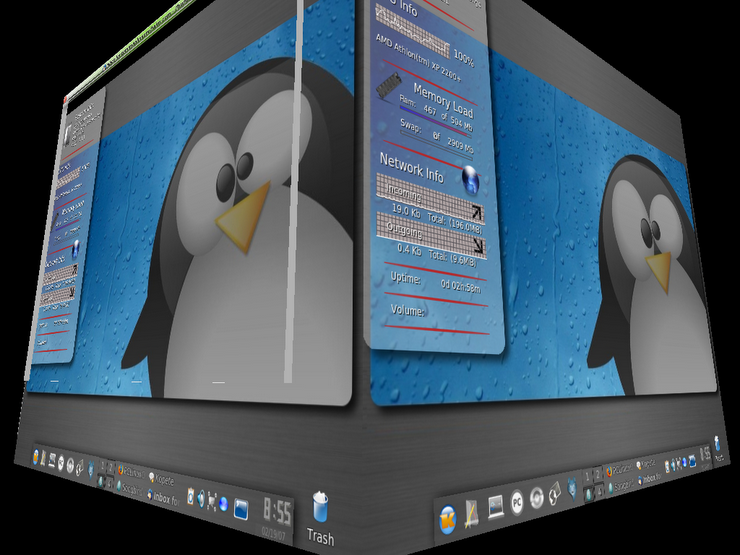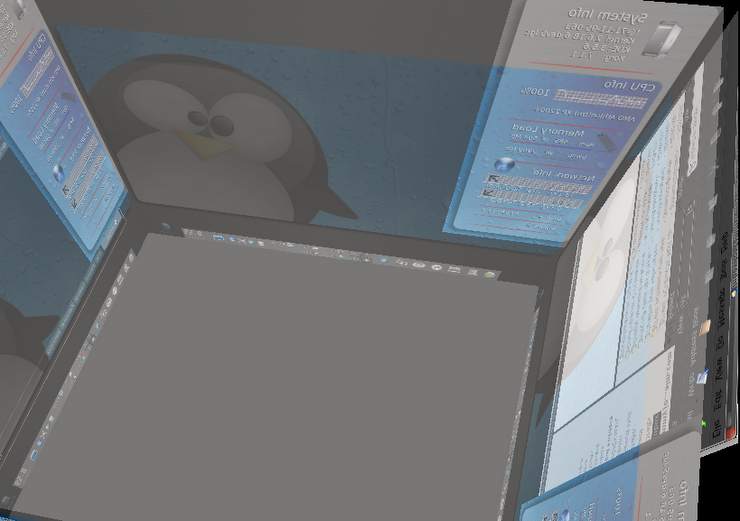Digital Rights – Government Wrongs
“We the people...” Three simple, innocuous words. Yet those words were so important, so fundamental to all that followed, that the authors of the United States Constitution put them right up front. They set the tone for the entire document. Looking around at the current legislative landscape, one wonders if that document has ever been read by the recent crop of lawmakers. Especially those first three words.
-----
Bits and Pieces:
On April 27, 1998, BIOS manufacturer Phoenix Technologies buys out it's only significant competition in the BIOS market - Award Software. If the CPU, or processor is the "brain" of your computer, the BIOS is it's "heart". Basically, it controls access between the software and the hardware of your machine.
1998 - The DMCA - Digital Millennium Copyright Act is passed. There has been speculation that Microsoft and major media interest groups both lobbied for and provided input to this act.
On March 10, 2000 at the Game Developers Conference in San Jose, Bill Gates, CEO of Microsoft, officially unveils the XBox game console to the world.
June 2002 - Microsoft announces "Palladium" which is part of the strategy of the TCG - Trusted Computing Group. "Trusted Computing" - it sounds so warm and fuzzy, doesn't it? Question is - trusted for whom?
April 2003 - David Rocci is sentenced to prison and fined nearly $30,000 USD for selling so-called XBox mod chips over his website. He is charged and sentenced under the DMCA.
September 2003 - Phoenix Technologies, LLC and Microsoft Corp. announce a joint venture to tie together the Phoenix core BIOS code more closely with Microsoft software. The Phoenix BIOS, thanks to their acquisition of Award Software, is now at the heart of nearly every PC you can currently purchase.
-----
There are more pieces, but these will suffice. Consider, David Rocci did not sell crack cocaine. He did not sell child porn. He sold a chip that let the purchasers of the XBox (remember the concept of "you paid for it - it's yours?") run software not locked down by Microsoft. That's all. In essence, David Rocci sold you a set of high-performance tires for your car - he was jailed under the legal theory that someone, somewhere might rob a bank using a getaway car fitted with those tires.
Microsoft wants to sell you a car. They also want to tell you where you can buy your gas, what streets you can and can't drive on, whose oil you can buy and who you can have in the car with you. They then want to “upgrade” the roads – and sell you the same car all over again.
The original XBox was a warmup exercise - unlike every other game console, the original XBox was a fairly standard PC. The question the XBox asked: "Can we sell a PC that is locked down by technology and legislation to run only what we say you can run?" - The answer was a resounding yes.
The technology part of this scheme can be, and has been defeated. But the real hammer, the real threat is the legal side of the equation. You could be sent to prison for doing so.
The original DMCA had several arguments made for it. It was promised to cut into wholesale piracy by criminal organizations. It was even suggested that terrorism was funded by such piracy. But the proof, as they say, is in the pudding. Instead, it has been used primarily by huge business interests to prosecute and intimidate ordinary citizens.
Yet that hasn't stopped the U.S. government from proposing even more draconian legislation. The IPPA, Intellectual Property Protection act would not only make it illegal to fit non-Microsoft tires to your car – it would make owning the jack and wrenches (UK note: spanners, and yes, tyres) illegal. Imprisonable for up to ten years. You would literally be better off walking into a store, stuffing your pockets with software and music then running out. That would likely only net you only probation and community service.
And we heard the same tired arguments trotted out for the IPPA. According to Attorney General Alberto Gonzales, the problem is that the money made by infringing businesses is being used "quite frankly, to fund terrorism activities." Mr. Gonzales, pardon me for saying that this smells like the north end of a south-facing bull. We've heard it before and it smelled about the same then.
It's all about DRM - something called Digital Rights Management. Sounds good, it has the word "Rights" in it so it must be good, right? Problem is, it has absolutely nothing to do with rights - at least, not your rights. It has everything to do with the bloated sense of entitlement that the major hardware, software and media outlets call "rights". And what does "Digital" have to do with fair use rights, anyway? It's a noise word, thrown in to confuse the tech-phobic. So it's not about "Digital", it's not about "Rights", that pretty much just leaves "Management" of your use of the goods you paid for.
We live in a world where "fair use" has become a dirty term - equivalent to piracy. This is the perennial squeal of the fattest corporate hogs who think there should be more slop in their trough. The ones who envision a day when every time you listen to a CD, another coin rolls into their purses. A day when their competitor's media will be unusable on their products. And I understand that. Really I do. It's capitalism at work.
What I don't understand, what I can not condone, is the legislative concept that corporate "rights", which are a fiction, somehow trump very real individual rights in the laws of our land. What I don't accept is the “right” to have legislation enacted that props up a flawed business model. I have the right to open a restaurant that serves boiled shoes. I just do not have the right to legislation that forces everyone to eat my boiled shoes.
The stench of corporate entitlement is so thick in our halls of government that you need a chainsaw to cut through it. And there's no sign of improvement. But that may not be the worst of it. Corporate interests aside, I do not know of a government, anywhere, at any period of history that didn't have some attraction to the concept of managing access of the populace to media. Control the media – and you control the people.
Which is why open source is crucial. Which is why open media formats are vital. The day content can be controlled completely is the day you see that control being used to manage the little people. You and I. Open source, more than any other technology phenomenon is one way to combat this trend. I urge you to use and actively support open solutions wherever possible, and to promote them at every opportunity. I ask you to remember a concept that our current governments have forgotten – and would like us to forget...
We the people.
Special thanks to Neptune, PCLinuxOS forum member for this wonderfully written piece.
Wednesday, February 28, 2007
Subscribe to:
Post Comments (Atom)




1 comment:
Thanks for writing this.
Post a Comment